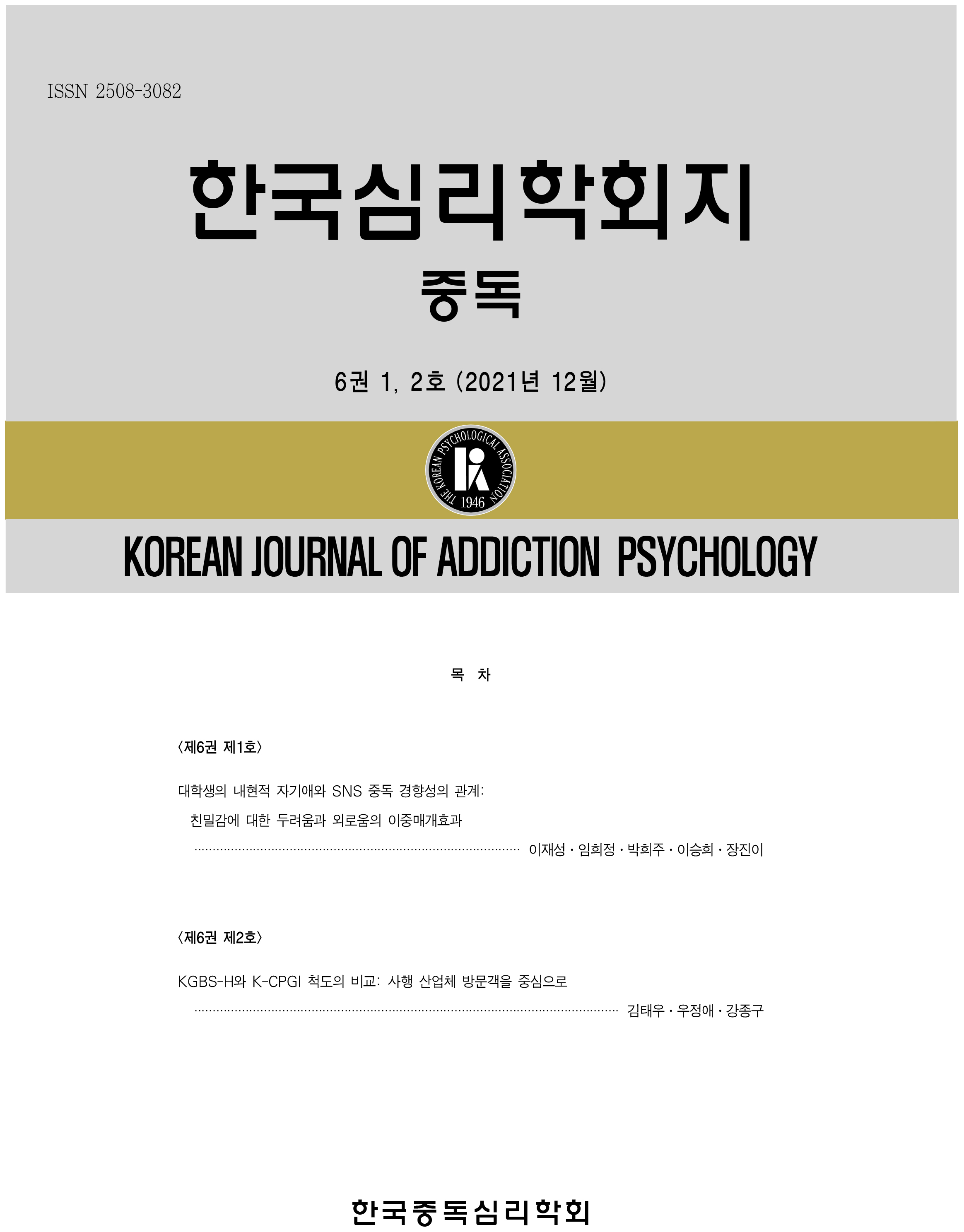Korean Journal of Addiction Psychology
- Log In/Sign Up
- P-ISSN2508-3082
 ISSN : 2508-3082
ISSN : 2508-3082
Experience of A.A. Participants: Focusing on the Practice of the 9th Step
Sung-Hee Cho (Experience of A.A. Participants: Focusing on the Practice of the 9th Step)
Abstract
The objective of this study is to explore the 9th step practice experience for A.A. participants with Alcohol Use Disorder. To this objective, 10 subjects participated in the study, who have been attending A.A. and maintaining sobriety over 10 years. Data were collected by use of in-depth interviews. The collected data were analyzed using Colaizzi’s phenomenological method, and derived 190 concepts, 55 themes, and 20 theme clusters. The results are ‘Addicted by illness’, ‘Focus on A.A. to live’, ‘Experiencing love, trust and hope in A.A.’, ‘Feeling the need for making amends with fear of relapse and hope for a new life’, ‘Postpone making amends while feeling anger and fear‘, ‘Being stuck in the past due to unfinished amends’, ‘Realize that making amends don’t solve all problems’, ‘Careful not to fall into pride while practicing the ninth step’, ‘Focus on only my problems with a humble attitude’, ‘The resentment and guilt that weighed on my heart was lifted, and the light came inside’, ‘Attitude toward the world has changed in a positive way’, ‘Realize what I have done wrong exactly’, ‘Being proud of myself and others’, ‘Experiencing forgiveness and encountering God while pleading in prayer’, ‘Being respected by putting myself first’, ‘Experiencing the family who felt my change, pouring out the pain they had endured’, ‘The relationship with family deepens’, ‘Feeling that the reward can never be completed’, ‘Constantly practicing making amends’, ‘As recovery progresses, the amends area expands and matures’. The result is significantly useful in understanding clients in addiction treatment fields.
- keywords
- Alcohol use disorder, 9th step, Make amends, Phenomenological study
- Submission Date
- 2022-09-02
- Revised Date
- Accepted Date
- 2022-12-31
- Downloaded
- Viewed
- 0KCI Citations
- 0WOS Citations
